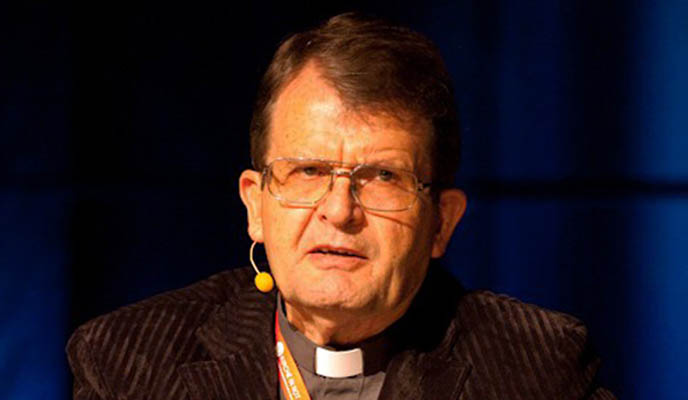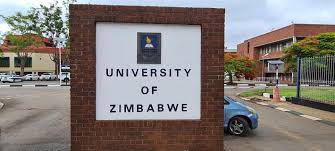
AS I came to know the Zimbabwean way of life, and Zimbabwean and African culture, I was struck by how much people want to be “respected”, want to enjoy the respect of their fellow citizens; to that end, they make great efforts to behave in a respectful manner. If you want to be respected, you have to have respect for others yourself
Opinion: Fr Oskar Wermter SJ
At the same time, people can be deeply hurt when they fail to be respected by fellow citizens, their colleagues and workmates, friends and relatives.
What do we mean by ‘respect’?
We have respect for co-citizens. We see the truth in such a person. We acknowledge what he/she is, who he is, what he has achieved in his/her life, in their particular field of competence and knowledge. Above all, we know him (or her) as a human being, a person, a leader in the community etc. In the past, people of some achievement were given a title and addressed with such a title, e.g, Sir, Ma’am, Mr, Mrs, Reverend, Your Honour, The Honourable Minister (in Parliament), The Hon Member of Parliament (MP), Your Excellency (President, Prime Minister etc).
But there are also “very honourable” people who are not given much respect. In fact, despite their high position on the ladder of social success, they are despised and looked down upon as persons of little respect and honour. We want to have our humanity “respected”.
But people may deny us such honour and recognition. And this may depress and disappoint us. Zimbabweans remember that they were not much respected in the “baas culture”, which had no place for the indigenous people.
We must give due respect to any human being, anyone who has a human face and is seen doing his duty as a member of the citizenry, any person who recognises our roles in the political or economic or cultural life among us.
- Chamisa under fire over US$120K donation
- Mavhunga puts DeMbare into Chibuku quarterfinals
- Pension funds bet on Cabora Bassa oilfields
- Councils defy govt fire tender directive
Keep Reading
But there are people who do not find this recognition in society. Sometimes it happens because of the particular role they play in a country as strangers, migrants, unemployed people. Sometimes such people are victims of xenophobia.
We can tell people who lack recognition from their fellow human beings, that their Lord and Creator gives them all the respect, recognition and love they can dream of. That is also why the church takes great care of Christians who have cut their links to the church the body of Christ. But the Lord of the church has promised us that nothing can separate us from him and his love. While suffering human rejection and contempt, they are still united with Christ as members of the church, the body of Christ which is filled with the spirit of Christ.
God is not holding his brothers and sisters, indeed his children, in contempt, even if we know that we are weak and poor human beings. That is what we mean by mercy and compassion.
That is what we should bring back to our culture, the recognition of human dignity and respect for every person, even for the little ones. No one should perish because of bad moods, depression and sadness which afflict so many of us.
There can be manual workers (“blue collar”) who are looked down upon by “intellectuals” and desk workers, “brainy” people who have a privileged position, and lack respect for domestic workers, or factory workers; or soldiers who look down upon civilians. Or policemen who see in everyone they meet thieves and criminals and gangsters.
Worst is contempt of people of a different tribe or nation, strangers, refugees, etc. I remember that as a small schoolboy, my classmates were indigenous, while I was a foreign born stranger who was speaking a dialect with an accent my new friends found ridiculous and alien. Being at home with a family speaking a similar dialect (but gradually losing it and adopting a new language and regional dialect).
The family and home where I was familiar with the unusual language my new friends could not fully understand and consequently laughed about, saved me from feeling lost and overwhelmed by all this strange and alien talk.
People can also be ridiculed for their way of talking, their religion (Christianity or Islam) and their political opinions and affiliations. As a consequence, they feel cut off from the wider population, and unacceptable to the indigenous people and the owners of the land. When children of refugees feel rejected and ostracised, they hide at home among their brothers and sisters.
When young people realise that they and their parents are aliens, ridiculed and laughed about, they may resent this lack of respect and grow very bitter and even develop deep hatred for their new country, its culture, religion and politics, possibly even opt for violence and physical aggression.
Accepting political migrants and their hate ideology, means that you will give such uprooted people sympathy and a new environment of deep understanding.
Many migrants are driven into an existence of homelessness because they did not find respect and acceptance in their home country, and even less so in the country where they asked for asylum.
Asking for asylum is also a plea for mercy and compassion at a time when having pity on sudden arrivals is not popular. Pope Francis gave high praise to the German Chancellor Angela Merkel for supporting a highly liberal and generous immigration policy. He admired her feminine endeavour to make peace with people who have experienced much hardship, cruelty and hardheartedness.
Potential victims of such ethnic conflicts deserve our sympathy, deserve that we reach out to them with a warmhearted welcome.
Internationally, we must ask what has caused those hundreds of thousands pack their bags and cross rivers, lakes and oceans in order to reach new coastlines and centres for people on the run where the words “mercy” and “compassion” are still understood. Many caravans of refugees have started their journeys across deserts and oceans as a result of bad governance and intolerance, catastrophic economic policies, unemployment and sheer poverty.
Such people deserve to be welcomed in new countries and to be given asylum: Such migrants deserve to be received in peace, reaching out to them in the hope of a new environment where sharing life and the creation of new life are just part of a humane culture of goodness and kindness. We are reminded by Jesus that we must receive refugees with wide open arms because our ancestors-in-the-faith fled to Egypt and eventually to the Promised Land, always hoping for our Lord and God, and us his children, to show unending generosity. Failing to give mutual respect and honour happens even within couples, married or not, of a man and a woman. In our time, women the world over are engaged in a struggle to retain the respect which they are deeply convinced is due to them.
I myself was a migrant and refugee when I was still small. I hope I will never shut the doors to my small brothers and sisters all over the world when they come and want to land the vehicle of their desperate sea voyage on a new coastline.
The first followers of Christ called themselves THE WAY because they were always on the way (through the desert and across the ocean) to meet the lost ones who had no shelter or secure home.
We honour them and give them our respect if we offer them shelter, and share our country and our culture with them. We do away with their sadness, desperation and self-contempt if we welcome them as belonging to us and our Brother and Lord.
Fr Oskar Wermter SJ is a social commentator











